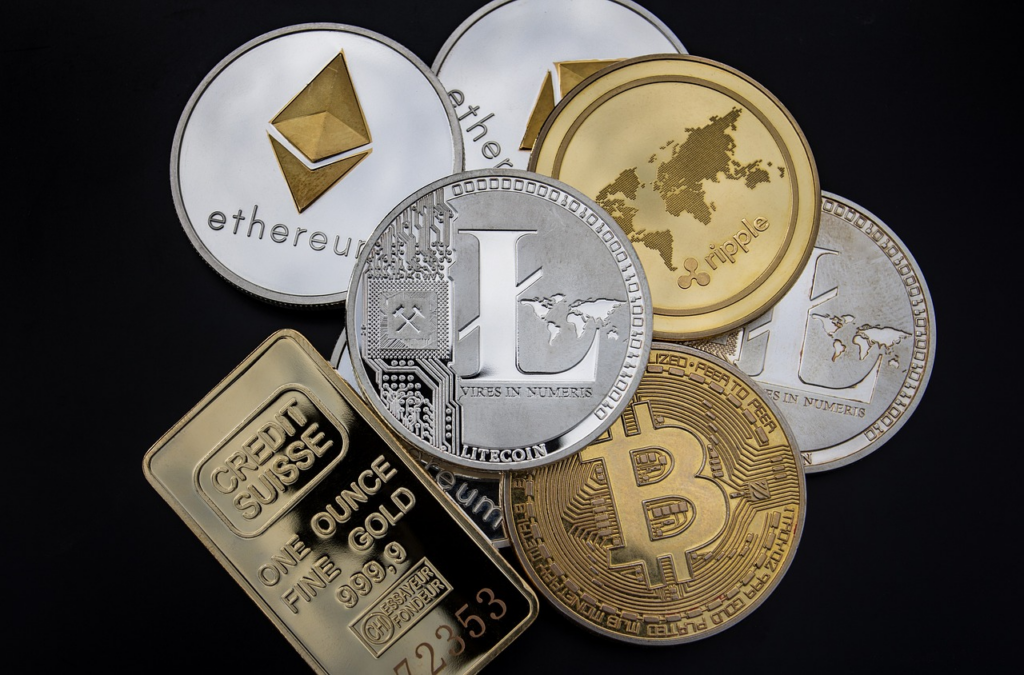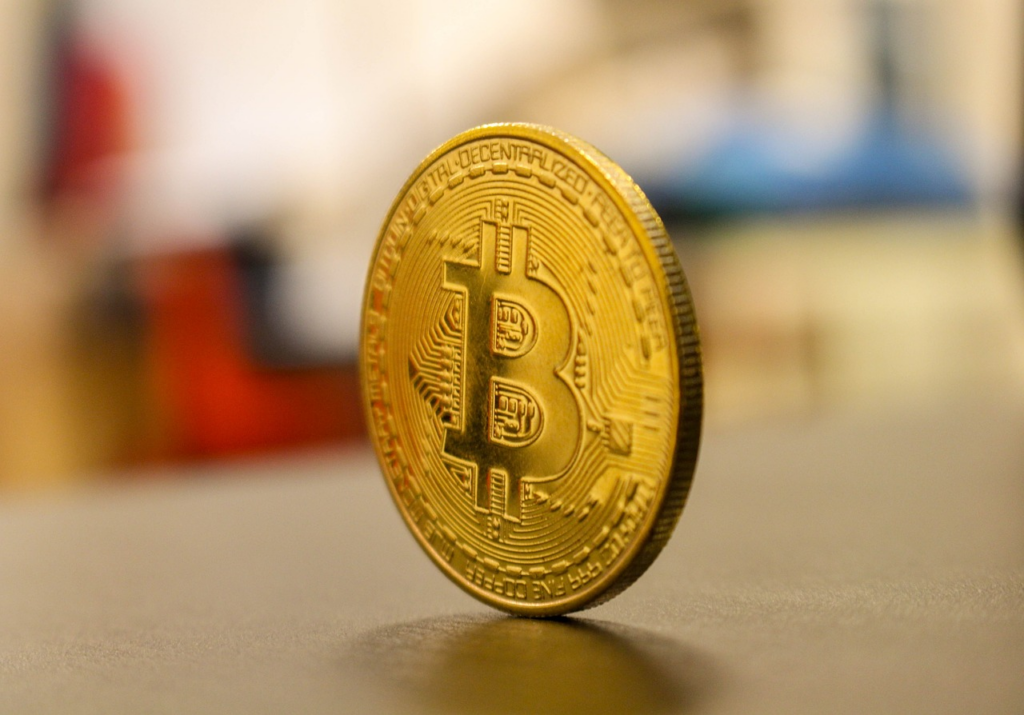With the growing interest in cryptocurrencies, many investors are wondering what the best options are for investing in 2024. In this content, we'll explore some of the most promising cryptocurrencies of the moment and provide financial tips to help you make informed decisions.
Which cryptocurrency is worth investing in?
With so many digital currencies available and new projects springing up all the time, investors are faced with the difficult decision of determining where to allocate their financial resources to get the best returns.
1. ethereum (ETH)
Ethereum is much more than just a cryptocurrency; it is a decentralized platform that enables the execution of smart contracts and the development of decentralized applications (DApps). Launched in 2015 by Vitalik Buterin, Ethereum quickly established itself as one of the world's leading cryptocurrencies, offering a flexible and robust infrastructure for building innovative blockchain solutions.
One of Ethereum's most notable features is its ability to support the creation of custom tokens and smart contracts, which makes it a popular choice for DeFi (Decentralized Finance) projects, NFTs (Non-Fungible Tokens) and more. This flexibility has driven the growth of the Ethereum ecosystem, attracting developers and entrepreneurs from all over the world.
In addition, Ethereum is undergoing a major transition of its consensus algorithm, from Proof of Work (PoW) to Proof of Stake (PoS), with the gradual implementation of Ethereum 2.0. This update aims to improve the network's scalability, security and energy efficiency, making it even more attractive to investors and users.
As a result of its widespread adoption and advanced functionalities, Ethereum continues to be one of the most traded and valued cryptocurrencies on the market. Many experts believe that Ethereum has significant growth potential in the future, especially as the DeFi ecosystem continues to expand and new applications are developed on the platform.

2. Bitcoin (BTC)
Bitcoin is often considered the pioneer and gold standard of cryptocurrencies. Since its creation in 2009 by an individual or group under the pseudonym Satoshi Nakamoto, Bitcoin has played a central role in the digital financial revolution. It introduced the concept of a decentralized digital currency, independent of traditional financial institutions and governments, and has been widely adopted as a digital store of value.
Bitcoin's main feature is its limited supply. Only 21 million bitcoins can be mined, making it deflationary by nature. This intrinsic scarcity has contributed to its increasing value over time, with many investors seeing Bitcoin as a way of protecting their wealth against inflation and the depreciation of fiat currencies.
In addition, Bitcoin has been increasingly recognized as a legitimate asset class, with large financial institutions, investment funds and companies adopting it as part of their investment strategies. This includes the acceptance of Bitcoin as a form of payment by companies such as Tesla and PayPal, as well as the launch of Bitcoin-based financial products such as futures and investment funds.
While Bitcoin is often compared to digital gold due to its store of value properties, it also has the potential to serve as a global medium of exchange and an alternative to the traditional financial system. Its fast transaction times and low fees make it attractive for international transactions and remittances, especially in regions with underdeveloped financial infrastructure.
3. Solana (SOL)
Solana is a high-performance blockchain platform that aims to solve the scalability challenges faced by many existing blockchain networks. Launched in 2020, Solana uses a unique consensus approach called Proof of History (PoH), combined with other innovative techniques, to achieve exceptionally high throughput and fast transaction times, all while maintaining low fees.
One of Solana's most notable features is its ability to process up to 65,000 transactions per second (TPS), significantly outperforming many other blockchain networks. This makes it especially attractive for DeFi applications, games and other applications that require scalability and low latencies for a fluid user experience.
In addition, Solana has made a name for itself in the DeFi ecosystem, with a growing list of projects built on its blockchain, including lending protocols, liquidity pools and decentralized exchange (DEX) platforms. Its rapid adoption and technical robustness have attracted investors and developers, contributing to the continued growth of the Solana ecosystem.
Another important aspect of Solana is its active and engaged community, which has played a key role in developing and promoting the platform. The Solana Foundation has worked closely with developers and projects to provide technical support, funding and additional resources to drive innovation on the network.
4. Pyth Network (PYTH)
Pyth Network is a next-generation oracle protocol built on the Solana blockchain, designed to provide real-time market data with high accuracy and reliability. Launched in 2021, Pyth Network aims to solve the data integrity and efficiency challenges faced by many DeFi protocols and decentralized applications.
The role of oracles is crucial in the DeFi ecosystem, as they connect smart contracts with external sources of real-world data, such as asset prices, exchange rates and market information. However, the integrity and availability of this data can be compromised by centralized oracles or data sources susceptible to manipulation.
Pyth Network addresses these problems by integrating data feeds directly from high-quality institutional sources such as exchanges, financial institutions and market data providers. This allows DeFi applications on the Solana blockchain to access reliable, real-time data to make automated decisions, such as loan settlements, price calculations and the execution of financial contracts.
In addition, Pyth Network stands out for its highly scalable, low-latency architecture, which allows for fast and efficient updates of data feeds. This is key to ensuring that the data provided by Pyth Network remains up-to-date and accurate, accurately reflecting real-time market conditions.
5. MakerDAO (MKR)
MakerDAO is one of the pioneers and pillars of the decentralized finance (DeFi) ecosystem. Launched in 2015, MakerDAO introduced the concept of decentralized stablecoins, the most notable of which is DAI, which is anchored to the value of the US dollar. The MakerDAO protocol runs on the Ethereum blockchain and is made up of two main cryptocurrencies: DAI and the MKR governance token.
DAI is a decentralized stablecoin that maintains its value close to 1 US dollar, making it a popular option for transactions and smart contracts within the DeFi ecosystem. DAI is created through the process of collateralized lending, where users block digital assets such as Ethereum (ETH) as collateral to generate DAI.
The MKR is the governance token of the MakerDAO protocol and plays a key role in the management and governance of the platform. MKR holders have the power to vote on governance proposals, such as changes to stability fees, updates to the protocol and the addition of new types of collateral accepted in the system.
One of MakerDAO's most distinctive features is its stability mechanism, which is designed to keep the value of the DAI close to 1 US dollar, even in conditions of extreme market volatility. This is achieved by automatically adjusting the stability rates and continuously monitoring the collateral locked in the system.
6. Stacks (STX)
Stacks is a blockchain platform that aims to bring advanced smart contract functionality to the Bitcoin (BTC) blockchain. Launched in 2013, Stacks (formerly known as Blockstack) allows developers to create decentralized applications (DApps) and smart contracts on the Bitcoin network, taking advantage of its security and robustness.
One of the most distinctive features of Stacks is its "stacking" approach, which involves linking STX tokens to the Bitcoin blockchain as collateral to guarantee the execution of smart contracts and the security of the network. This unique mechanism allows applications on Stacks to access the security and immutability of the Bitcoin blockchain, while still enjoying the advanced functionalities of smart contracts.
In addition, Stacks has introduced the concept of "Proof of Transfer" (PoX), a consensus mechanism that combines elements of Bitcoin's Proof of Work (PoW) with the security of the Bitcoin blockchain. PoX allows Bitcoin miners to earn rewards in STX tokens by linking their mining activities to the security of the Stacks blockchain.
Stacks aims to create an ecosystem of decentralized applications that respect the privacy and ownership of user data, allowing users to maintain control over their personal and digital information. This is achieved through features such as self-sovereign digital identities and encrypted data storage.
7. Uniswap (UNI)
Uniswap is one of the leading decentralized exchange (DEX) protocols built on the Ethereum blockchain. Launched in 2018 by Hayden Adams, Uniswap has revolutionized the cryptocurrency market by enabling the direct exchange of ERC-20 tokens quickly, securely and without the need for intermediaries.
Uniswap operates with an automated liquidity model, where users can provide liquidity to token pools in exchange for transaction fees. This means that anyone can become a liquidity provider and earn rewards for their involvement in the protocol, making it a truly decentralized and inclusive system.

One of Uniswap's most notable features is its integration with the Automated Market Maker (AMM) concept, which uses algorithms to determine asset prices based on supply and demand. This allows Uniswap to operate 24 hours a day, 7 days a week, without the need for specific buy or sell orders.
In addition, Uniswap has played a crucial role in the growth of the DeFi ecosystem, facilitating the exchange of tokens and the provision of liquidity for a variety of decentralized applications and protocols. Its user-friendly interface and ease of use have attracted millions of users and contributed to the explosion in trading volume on the platform.
The launch of the native UNI token in September 2020 marked a significant milestone in Uniswap's history, transforming it from a non-profit protocol into a community governed by its own users. UNI holders have the power to propose and vote on changes to the protocol, including code updates, allocation of funds and distribution of trading fees.
Despite its success, Uniswap faces challenges, such as competition from other DEXs and issues related to scalability and transaction fees on the Ethereum blockchain. However, the team behind Uniswap is constantly working on solutions to improve the user experience and efficiency of the protocol.
Choose the right cryptocurrency
With so many options available, choosing the right cryptocurrencies to invest in can be challenging. However, by considering the unique characteristics of each of the coins mentioned above and following the financial tips provided, you can make more informed investment decisions.
Always remember to do your own research, diversify your portfolio and be aware of the risks involved. With diligence and caution, it is possible to find cryptocurrencies that have the potential to offer significant returns in the future.
See also: 10 profitable businesses in Brazil
April 3rd, 2024

She has a degree in Literature - Portuguese/English, and is the creator of the Escritora de Sucesso website. As a writer, she seeks to expand everyone's knowledge with relevant information on various subjects. At Trend-Topics, she brings news and content ranging from entertainment to the country's economic situation.






